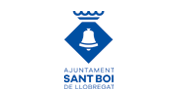Like the rest of the sports, the chess world has seen how its face-to-face tournaments were cancelled due to the pandemic. At this moment, the practitioners of our sport have remembered that we still have online chess. The whole chess world has turned to online chess. Online chess platforms have experienced unprecedented peaks of new registrations and frenetic activity.
Tournaments have suddenly multiplied, not only federations, but also clubs or any group of friends can create online tournaments. The streamers, not many, but well known, have become even more famous and their accounts have started to rise. Chess has become the most followed sport on Twitch, with American Hikaru Nakamura being the most followed streamer. World Champion Magnus Carlsen himself has invested in Chess24.com, one of the most popular platforms, to organize a series of online tournaments with the best players in the world. Suddenly the two worlds, face-to-face chess and online chess, have coincided, instead of running parallel.
One of the fruits of this new relationship is the birth of a new tournament concept, the hybrid tournament. A hybrid tournament is one that is played in one or more on-site venues, with organizers and referees, but online, with a computer support, whether laptop, tablet or even mobile and on an online platform.
One of the traditional tournaments organized by the Federació Catalana d’Escacs, the “Torneig Magistral Ciutat de Barcelona” is the perfect tournament to demonstrate the virtues of this new format. With the name of Barcelona World E-Chess Open – Ciutat de Barcelona, it will be held between November 27th and December 6th. This tournament, in hybrid format, will confront players from all over the world who will play in presential venues in different cities, but through an online chess platform, which in our case will be the largest worldwide, the American Chess.com.
The advantages of this new hybrid format, or Barcelona System, as we like to call it, are several, summarized in the following points:
- On the one hand, the player’s experience will be full, since apart from playing the game online, he/she will be in direct contact with other players and will not lose the chess atmosphere that is always generated in a face-to-face tournament.
- The presence of arbiters and even wifi connections with access only to very specific addresses will solve the main problem of online chess: cheating. Each platform has its own anti-cheating program, but its effectiveness is relative and far from perfect. In addition, the legal consequences of banning (expelling) a cheating player are null and void. Players play under nicknames that do not identify with real players, so Fide can do nothing about it.
- Costs are reduced, both for organizers and players, in a very clear way. There are no travel or hotel expenses, so players have to invest less and the organizers can reinvest by increasing the prizes.
- The fact of having several playing venues, in cities all over the world, makes a tournament truly international. These venues offer a plus to their local players with a service that is very profitable for them, since they are self-managed with the income from registrations and with very limited expenses (referees, sanitary protocol and little else).
- Online platforms also have advantages, of course, since they are part of this formula. Co-organizing a tournament with venues in several countries makes its projection greater, they gain in players and premiums, they gain in potential sponsors, as well as the venues, and they get a little closer to what would be one of their objectives: to make chess have a fixed seat in the e-games, which as we all know, although they are played online, they always end up playing their finals in person and in front of thousands of spectators. Clearly, achieving that goal would be good for the chess world in general.
We could go on looking for advantages of this hybrid tournament proposal, but I will end with one last one that seems important to me: this tournament format may be here to stay, not only temporarily now, but it can last and work together just like traditional tournaments.
Our new Ciutat de Barcelona, will have two groups of players according to international classification, will be played daily round, at a pace of 60 minutes plus 30 seconds per move, with a last day for the finals among the top eight. With a total prize pool of €18,000, the tournament has attracted the interest of numerous gaming venues, 24 to date, spread over the following countries:
List of locations
| Country | Number of locations | Country | Number of locations |
| Catalonia | 3 | Kazakhstan | 1 |
| Egypt | 2 | Macedonia | 1 |
| Portugal | 2 | Moldova | 1 |
| Ukraine | 2 | Montenegro | 1 |
| Angola | 1 | Nicaragua | 1 |
| Cape Verde | 1 | Russia | 1 |
| Denmark | 1 | Serbia | 1 |
| Slovakia | 1 | Tunisia | 1 |
| Greece | 1 | Uruguay | 1 |
| Latvia | 1 |
By GM Jordi Magem Badals, Sports Director of the Catalan Chess Federation




















